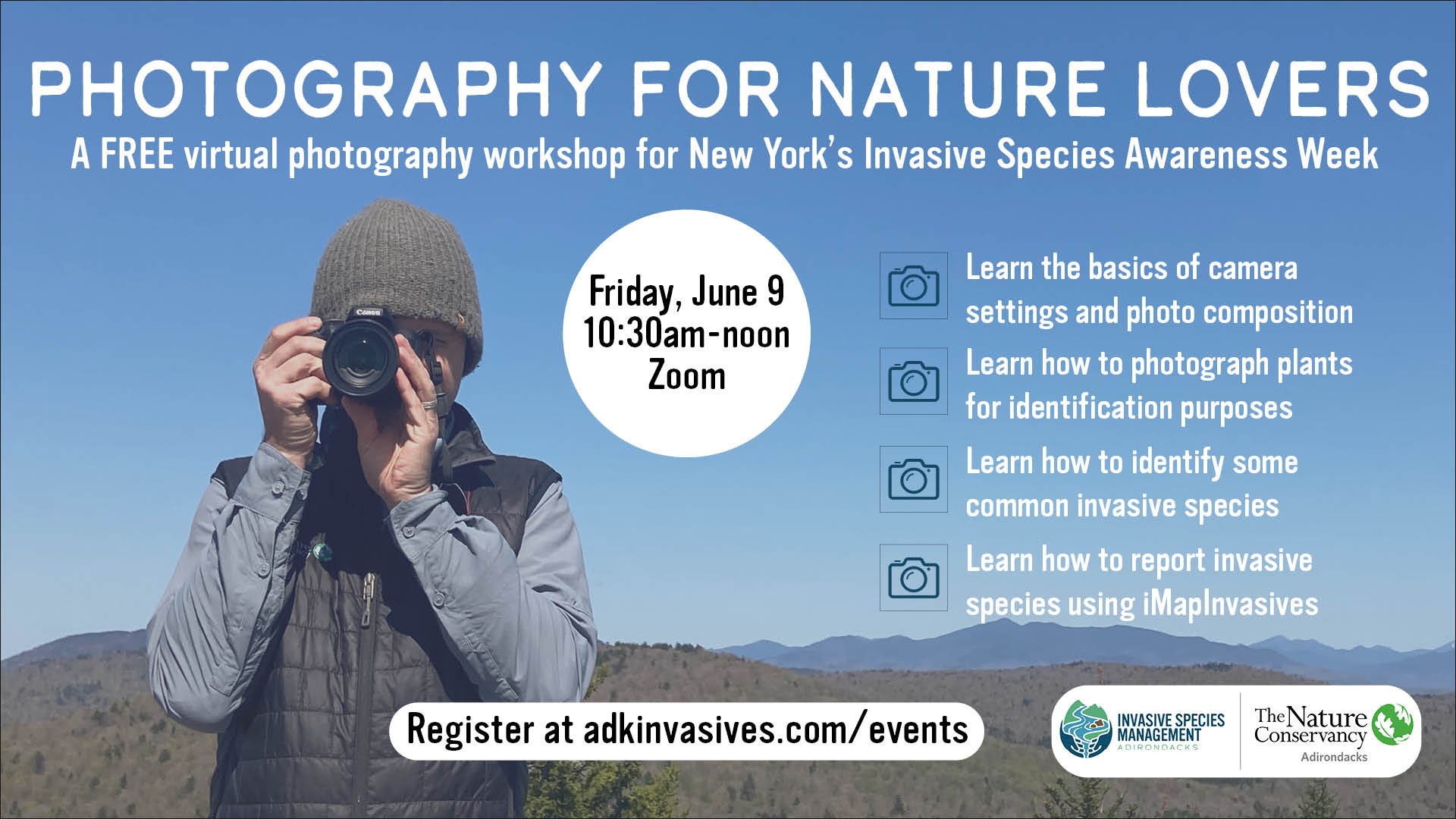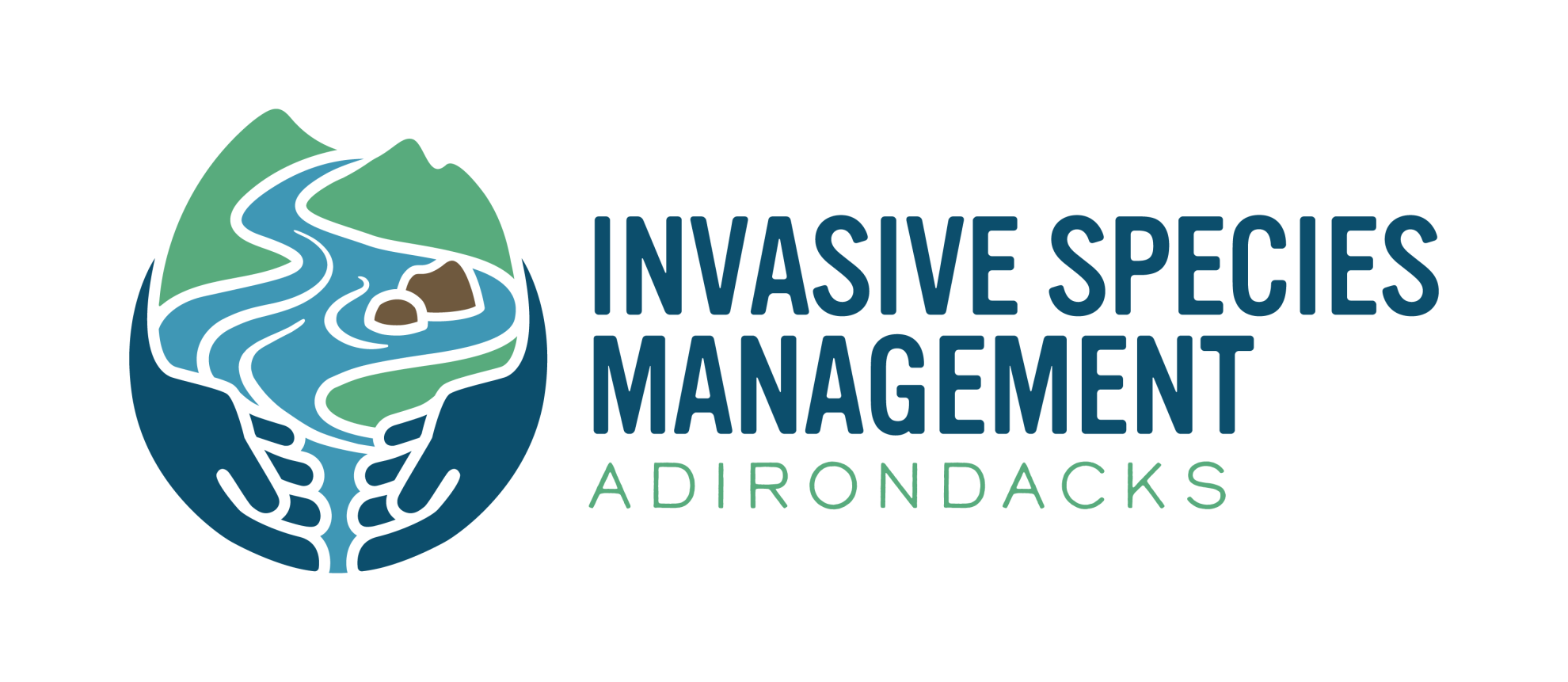APIPP kicks off summer education series with popular “Backyard Invasives” webinar

APIPP kicks off summer education series with popular “Backyard Invasives” webinar
KEENE VALLEY – The Nature Conservancy’s Adirondack Park Invasive Plant Program (APIPP) is gearing up for a summer of diverse educational programs on the importance of reporting, managing and preventing the spread of invasive species.
The free summer education series begins May 24 with the popular “Backyard Invasives: Identification and Management of Terrestrial Invasive Species” webinar.
Participants in the May 24 webinar will learn how to identity and manage common terrestrial invasive plants that could be found growing on their property. The safe chemical and manual control of invasive species following the principles of integrated pest management will also be covered. For those seeking pesticide credits, this webinar will offer 1.5 New York state pesticide credits in categories 3a, 6a, and 9.
On June 9 APIPP will celebrate New York’s Invasive Species Awareness Week with two programs, one field trip and one webinar.
The in-person program on June 9, “2023 Invasive Species Awareness Week Guided Walk,” is an educational walk from 10-11 a.m. along the Warren County Bike Trail in Lake George, where APIPP’s terrestrial invasive species expert, Becca Bernacki, will show how to identify common invasive plants. The walk is co-sponsored by the Lake George Association and the Lake George Land Conservancy.
The virtual program on June 9, “Photography for Nature Lovers,” is scheduled for 10:30 a.m.-noon. The program will cover the basics of photography including how to use manual camera settings, proper image composition techniques, how to photograph plants for identification purposes, an overview of some common invasive species, and how to report the presence of invasive species to iMapInvasives, New York’s invasive species database.
From 9-11:30 a.m. on June 21, APIPP will kick off its summer Lake Protectors volunteer program with “Lake Protectors Virtual Training.” Two in-person trainings will follow in July and August—the dates and locations will be confirmed soon. Each training is open to the public and will cover how to identify, survey for and report aquatic invasive species.
APIPP’s Lake Protectors volunteers attend a training and commit to monitoring a lake of their choice at least once between July and September. To date, citizen scientists have surveyed over 400 lakes throughout the Adirondacks. Anyone can become a Lake Protector—it's a great way to give back to the environment.
Next up is the “Best Management Practices for Roadside Invasive Species” webinar, scheduled for 10-11:30 a.m. on July 20. It will cover specific skills for identifying and preventing the spread of roadside invasive plants.
The roadside invasives event is designed for highway right-of-way professionals, including maintenance and operations staff from state, county and local governments. This is a great opportunity to learn how modifications in mowing regimes and other simple techniques can reduce the spread of invasive species. The program offers 1.5 New York state pesticide credits in categories 3a, 6a, 9 and 10. Live participation in the webinar and successful completion of an online quiz are required to receive credits.
And finally, from 10-11:30 a.m. on August 2, APIPP will kick off the summer Forest Pest Hunter volunteer program with a “Forest Pest Hunters: Surveying for Beech Leaf Disease” webinar. Forest Pest Hunter volunteers attend a training then adopt a trail to monitor for forest pests.
Last winter, Forest Pest Hunter volunteers won a statewide contest by submitting the most reports for hemlock woolly adelgid. August’s training will focus on beech leaf disease, a forest pest that was first confirmed in the Adirondacks last year. The exact cause of the disease is still unknown, although scientists believe a nematode might be responsible for its spread.
For more information or to register for any of APIPP’s free events, visit www.adkinvasives.com/events.
APIPP’s mission is to work in partnership to minimize the impact of invasive species on the Adirondack region’s communities, lands, and waters. Learn more at www.adkinvasives.com.
###
The Adirondack Park Invasive Plant Program (APIPP) serves as the Adirondack Partnership for Regional Invasive Species Management (PRISM), one of eight partnerships across New York. APIPP is hosted by The Adirondack Chapter of The Nature Conservancy and receives financial support from the Environmental Protection Fund administered by New York State Department of Environmental Conservation.

